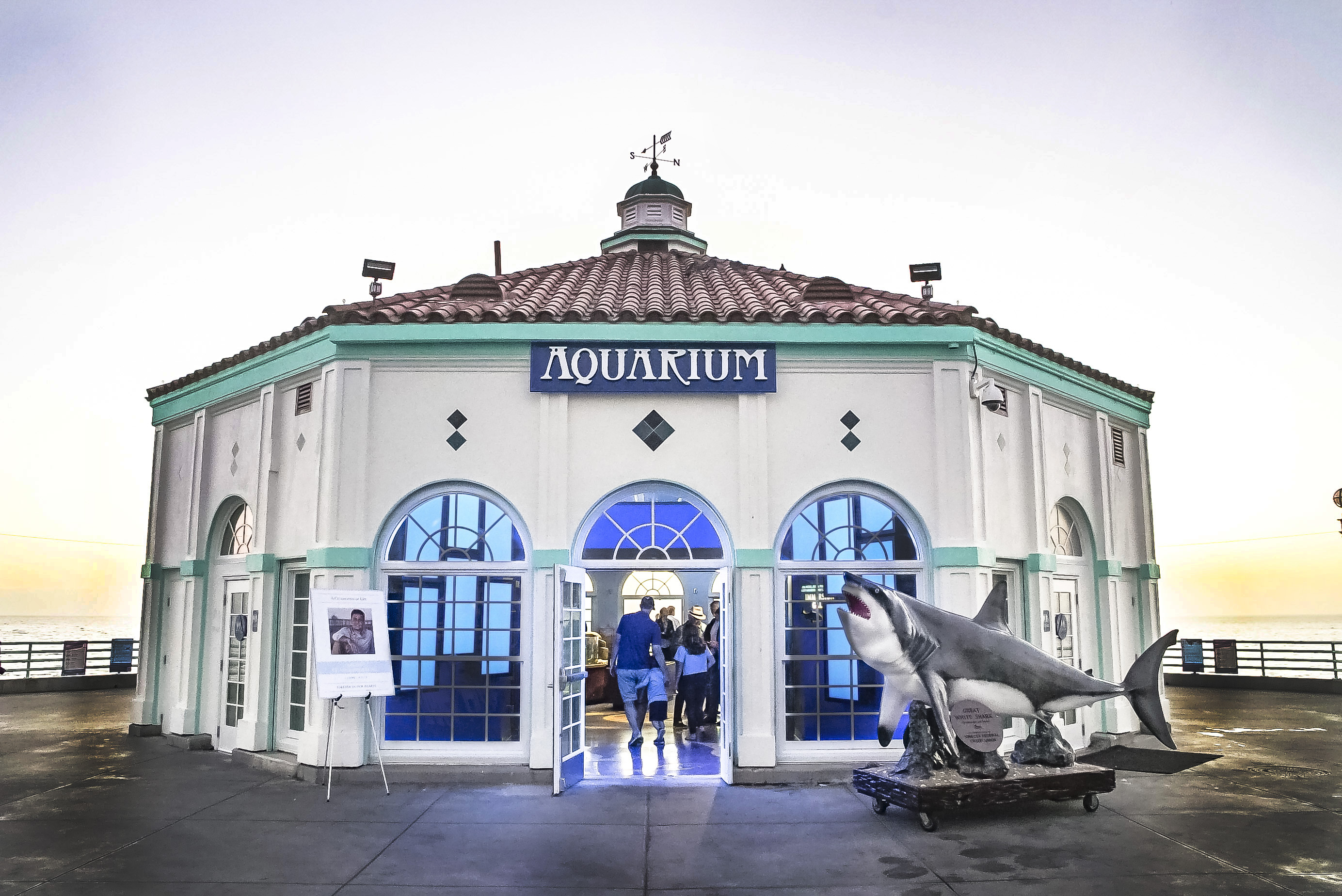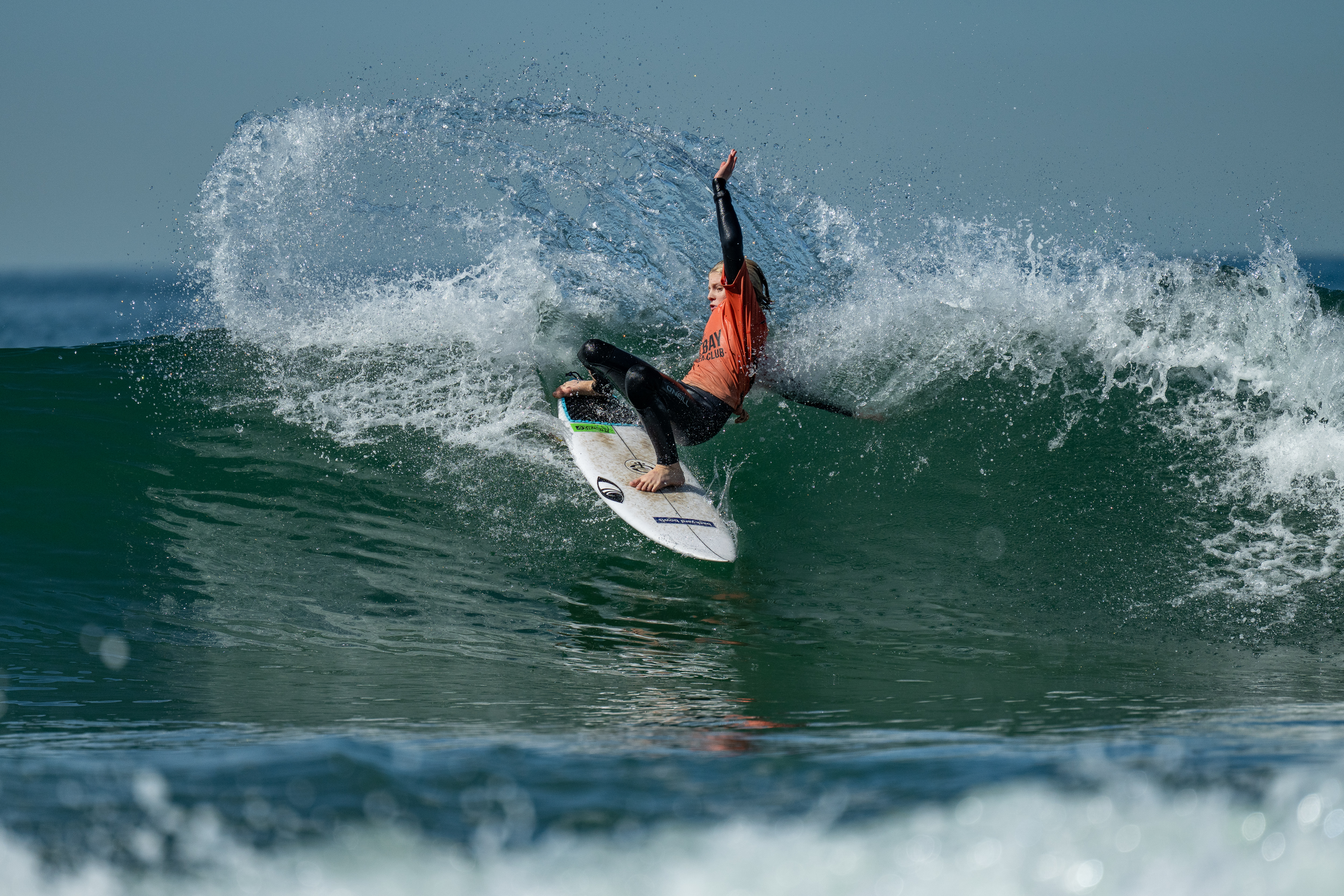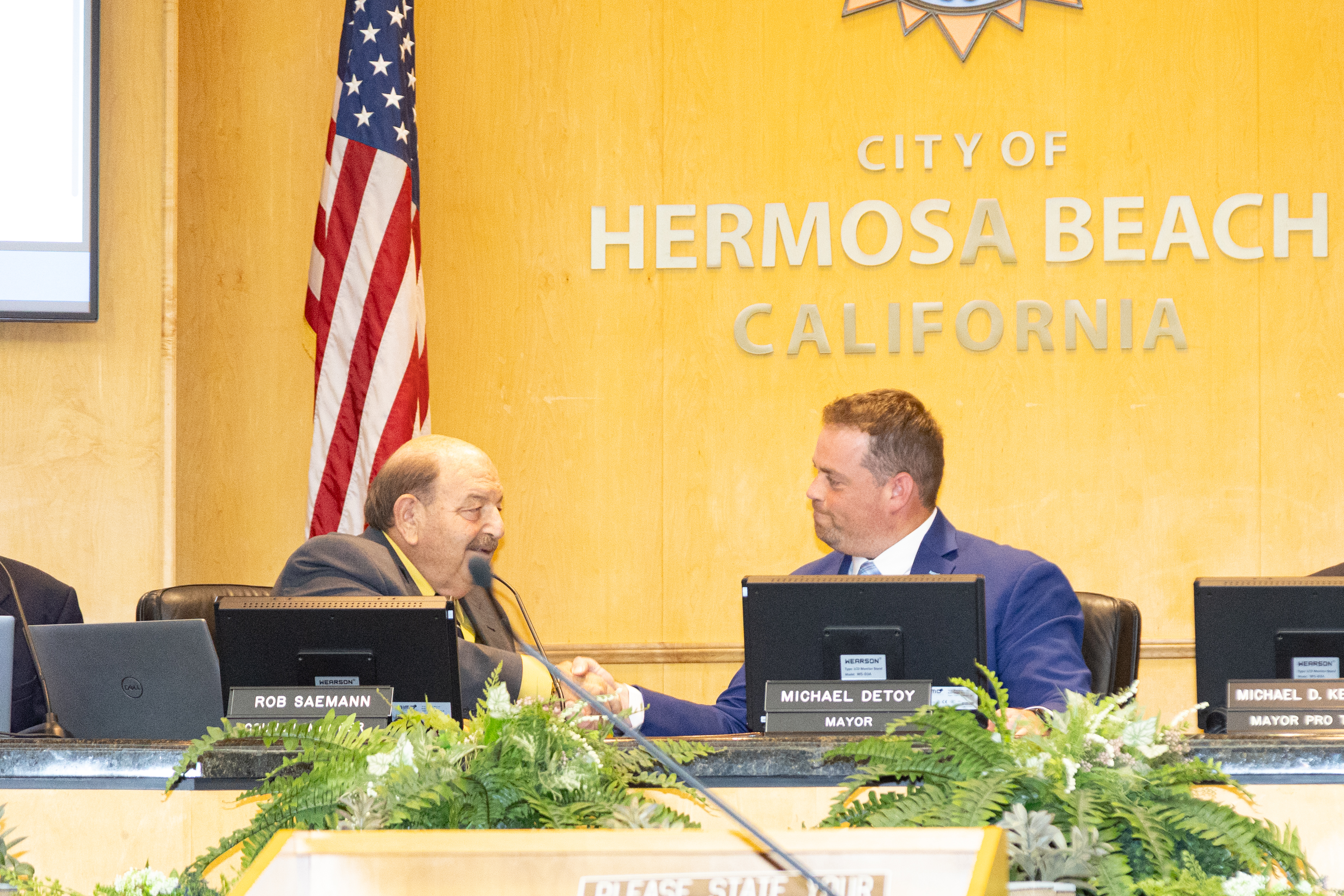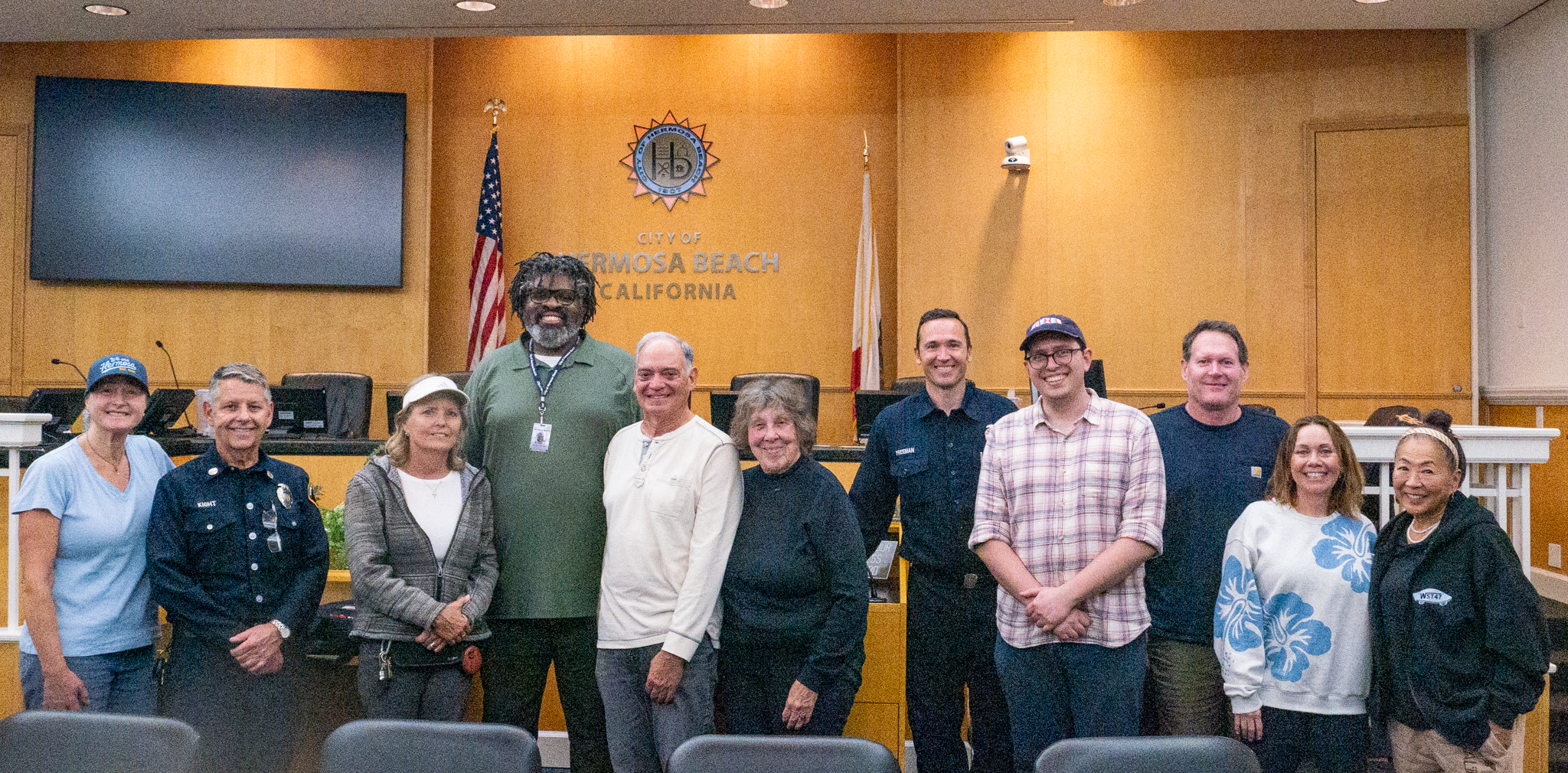
Saying that alcohol-serving nightspots force the city government to spend inordinate amounts of money on police patrols and firefighter-paramedic services, Lissner has put together a proposed ballot initiative that could balloon the business license tax from $2,268 a year to more than $100,000 a year for many Pier Plaza nightspots.
Lissner is confident that he can qualify his initiative for the November ballot, by gathering signatures of 15 percent of the town’s registered voters.
“I think people will sign [an initiative petition] because they can see that the city has been cutting back its services,” Lissner said Tuesday. “I want the city to be able to maintain its services.”
Attorney Bill Beverly, who has represented some Hermosa restaurants and the Hermosa Beach Restaurant Association, said Lissner’s could face legal challenges on two fronts: questioning whether the establishments do cost a disproportionate amount of money, and whether the initiative would reasonably address the issue.
“I would first expect some kind of political action to inform voters at the public level what kind of revenues these businesses generate for the city,” he said.
Beverly also questioned whether members of the public would consider it fair to raise business license taxes so steeply.
“I could see someone thinking, I’m opposed to more bars, but I’m also opposed to treating them unfairly,” he said.
Lissner said he expects a legal challenge, and believes his initiative will survive it.
He pointed out that the city last year increased vacant staff positions to 14, and reduced the Fire Department’s per-shift staffing from six firefighters to five.
“Hermosa public safety [police and fire] expenditures are taking more and more of the city’s income, leaving a decreasing portion to pay for other city services. In fiscal year 2009-2010, the city’s overall tax revenue dropped to $19.5 million, while the cost of public safety increased to $17.3 million,” Lissner wrote in a notice of intent to circulate the petition, on file at City Hall.
“Some of Hermosa’s restaurants and bars have been making extraordinary and increasing demands on city services, while the city’s business license tax on the categories including the largest and most intensively developed restaurants and bars is a flat $2,268 annually,” Lissner wrote.
Business license taxes have not been raised in 19 years in Hermosa. In recent years city officials have discussed raising some of the businesses’ tax rates, but have not placed a tax-increase proposal before voters. It would take a four-fifths majority of the City Council to place a tax-raising measure on the ballot.
Lissner wrote that the tax increase would provide “a stable, reliable and adequate funding source” for city services.
He said he does not know how much revenue the city would raise if voters eventually approve his initiative, but he believes business license tax revenues would increase, even though some establishments might see their own tax rate reduced.
He said he does not think the tax increases would drive nightspots out of business.
“I think it will be a considerable expense to them, but it is not cheap to operate these places, and they can pass [increased costs] along to their customers,” he said.
“What might happen is it might cause some places to adjust their hours to keep the cost of their business license down,” he added.
As an example of an alcohol-serving establishment that would pay a lower business license tax, Lissner offered an off-the-cuff computation for La Playita. Despite full liquor service, the eatery would see its tax drop to $450 or so, Lissner said, because of the absence of “multipliers” such as dancing, late hours and nearby alcohol establishments.
But he said “almost anybody” on the Pier Plaza would see their tax rate “go up a lot,” topping $100,000 “very easily.”
“The bigger you are, the more privileges you have – such as dancing, full liquor, late hours, and being in a more concentrated area – the more expensive it would be,” he said.
The initiative would set the business license tax for each “restaurant or bar, cocktail lounge or nightclub” at $6 a year for each person that could fit into the establishment at one time, according to its legal occupancy limit.
But the tax would multiply by 1.5 if dancing is permitted, and multiply again by four if full liquor is sold, or by 1.5 if only beer and wine are sold.
The tax would multiply again by three if alcohol is sold and the establishment stands within 90 feet of three or more similar businesses, or by 1.5 if alcohol is sold and the establishment stands within 90 feet of any two similar businesses.
Later closing times would add additional multipliers, from a low of one for an establishment closing at 10 p.m. to a high of 18 for an establishment closing at 2 a.m. Sunday through Wednesday, and 3 a.m. Thursday through Saturday.
Lissner, a persistent critic of the city’s nightlife and opponent of new liquor licenses for Hermosa businesses, said he expects a battle like the one in 2007 when he pushed for a ballot referendum to let voters decide whether to fight the possible expansion of alcohol-serving establishments in the downtown.
“It should be interesting,” he said.
In 2007, Lissner mounted a petition drive to get enough signatures to place his referendum before voters, and Sharkeez restaurant on the Pier Plaza mounted a counter-drive. Police were called several times as the two sides argued at shopping centers, and went door-to-door through Hermosa neighborhoods to plead their cases side by side.
Lissner won in the end, when the 2007 City Council reversed its own pro-expansion ordinance without waiting to see whether the voters would do it for them.
Lissner said he expects a legal challenge this time around, and he wondered aloud if the City Council might end up placing a competing measure on the ballot with milder tax increases than those he is proposing.
“I think it will survive a legal challenge,” he said.
His intent to circulate the petition has been given to the city attorney, who must write a prospective title and summary of the initiative that would appear on the ballot. Lissner said he expects that will be completed by about the end of the week, and then he will begin gathering signatures.
He said he will post the full initiative on his website vivahermosa.com. ER








